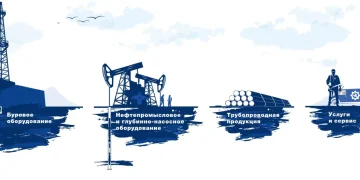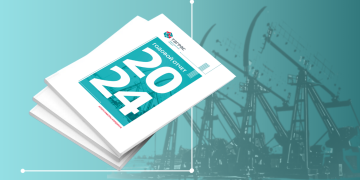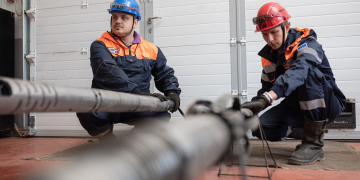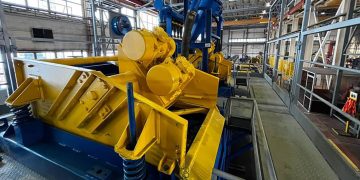Lenar Nazipov, TAGRAS: Companies Ready for Changes will Survive in the Market of the Future
General Director of the oilfield services holding – on the state of the industry, principles of anti-crisis management and development plans.
– Indeed, 2020 has become a special year for the oil production market and the oil and gas service industry. The pandemic led to a decrease in energy demand, which was reflected in oil prices. The swift adoption of the new OPEC + agreement stabilized quotations, at the end of the year oil even traded at around $ 60 per barrel, but the agreement sharply limited production volumes.
In these conditions, oil producing companies have reduced capital and operating costs, reduced operating well stock, drilling volumes, workover, and, in general, financing of oilfield services.
Experts tentatively estimate the drop in the volume of the global oilfield services market by 20%.
In Russia, the negative dynamics will be 20-25%. The industry accumulates approximately RUB1.5 trillion in revenue annually and provides jobs for about 300 thousand people. So a quarter drop for the domestic oilfield services is a significant loss.
– How the market situation was reflected in the activities of the Holding ” TAGRAS”?
– Holding ” TAGRAS”, like, probably, the majority of Russian companies as a whole, ended the last year with losses. The total revenue of our divisions amounted to slightly more than RUB 85 billion, which is almost 11% less than in 2019.
At the same time, in the first quarter of last year, we registered positive dynamics for the Holding as a whole. But already in April-May, such areas as drilling and workover of wells completely stopped. Whole businesses were out of work. More than 7 thousand people were forecasted for release in the Holding as a whole. We managed to retain about 40% of this number of employees.
– How did you manage to neutralize losses?
– During this period, all divisions did a great job. We have reduced the internal costs of enterprises. Literally, I had to ” tighten my belts”. As a result, the costs of the Holding were optimized by about 9 billion rubles.
In order to preserve qualified personnel as much as possible, to load people with work, we have strengthened cooperation between divisions, began to actively exchange resources within the Holding.
We managed to save jobs for 30 thousand people.
The main task that still stands is to maintain the existing volume of work. Also the priority is the development of new types of activities, the development of competencies in the main and related industries, the search for new markets and customers.
– The portfolio of customers of the Holding’s divisions includes over 1,500 customers. These are Russian and foreign companies, including the market leaders. How are the requirements for the service changing and what challenges does TAGRAS face when solving customer problems?
– All our customers are individual, differ from each other both in the requirements for the performance of work and in the conditions in which the work is carried out. These are not just words. There are many nuances that can affect the result. For example, climatic features, environmental requirements, geological characteristics of reservoirs, accumulated experience of work in a particular region and established business traditions.
The geography of the Holding’s enterprises covers all oil-producing regions of Russia. Our specialists work in the Arctic, as well as in the countries of the near and far abroad: there are projects and facilities in Kazakhstan, Uzbekistan, Turkmenistan, the countries of the Middle East and Asia.
Taking into account such a difference in geography, in the conditions of work, it is possible to successfully fulfill orders only if there is an individual approach to the requirements of each contractor. We have each division in each case trying to find the best solution to meet the needs of customers. Only thanks to this approach TAGRAS remains in demand on the market and develops.
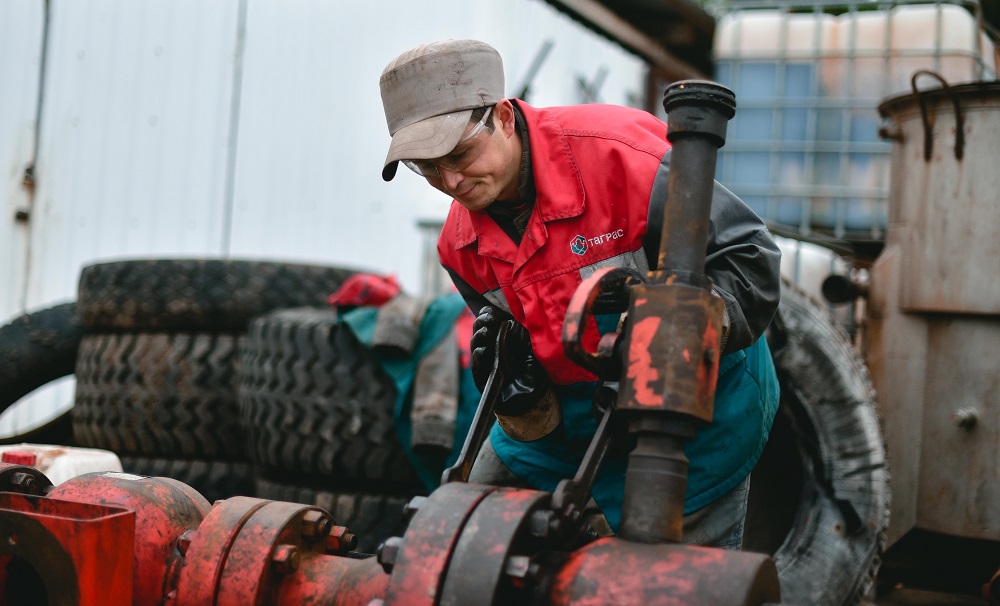
– Lenar Limovich, at the end of 2020, what share holding ” TAGRAS” occupies in the Russian oilfield services market, what is the dynamic?
– It is impossible to unequivocally answer this question. In general, oilfield services includes different areas of activity and in them we have different market shares. Our share in the Russian market is estimated at approximately 6%. The oil and gas service industry in Russia is about 300 enterprises, so our share is quite large. Moreover, in some areas it is higher.
For example, we conduct about a quarter of all seismic surveys ( 23%), the share of field geophysics is 12%, and hydraulic fracturing is 5.5%. We hold leading positions in these areas.
As for the dynamics, a lot depends on the conditions for entering the market. Where there is a high threshold of entry, for example, hydraulic fracturing or seismic exploration, where significant investments are required for the purchase of equipment and personnel training, and there are high risks to the customer for the result, the number of companies is limited and, accordingly, the Holding has a large market share … And, on the contrary, in areas where the threshold for entry is insignificant, for example, workover and workover of wells, and, accordingly, high competition among companies, the share of the Holding is somewhat smaller.
This dynamics has remained unchanged in recent years and, most likely, will not change in the near future.
TAGRAS is one of the top 5 Russian oilfield service companies. To strengthen our position, we are putting in a lot of effort.
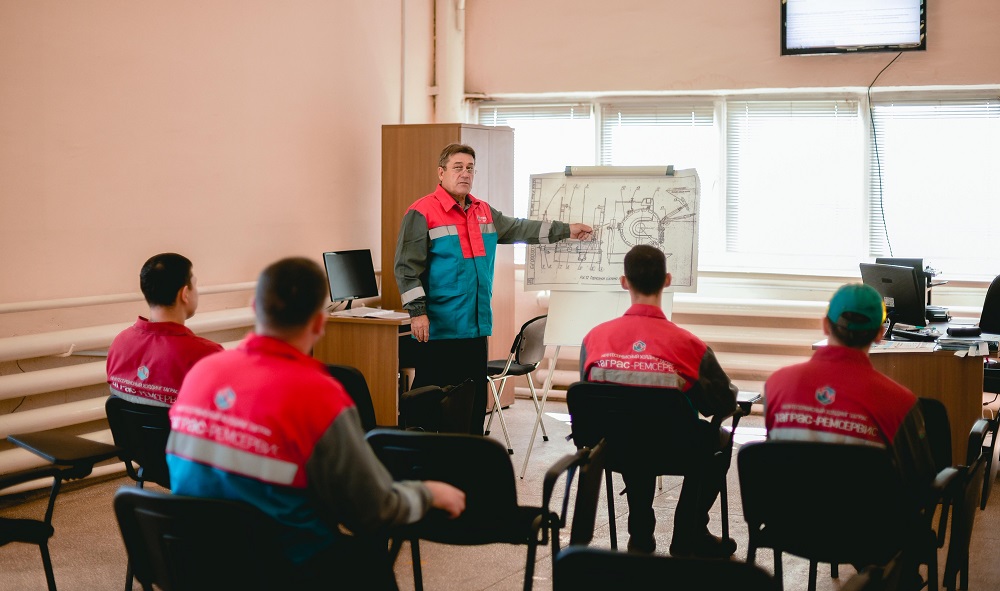
– “ TAGRAS” Holding has almost 70 years of experience behind its shoulders . But experience alone is not enough to maintain leadership. How does the group manage to strengthen its positions in Russia and abroad?
– Through continuous development. Moreover, there are several key factors.
First, innovation. The investments of the divisions of the Holding in the development of new technologies, the creation of modern equipment samples amounted to 125 million rubles last year. We work very closely with the leading universities in the country. We understand that the crisis will end and the Russian oil industry will need new technologies and modern equipment. And in the context of the introduction of more and more sanctions restrictions on the part of Western countries, the need for domestic developments of equipment and technologies will grow every year.
Secondly, investments in new production facilities. Despite the crisis, we managed to maintain the investment program, while we are systematically shifting the focus towards digital and smart projects. Last year, the total investment program for the Holding amounted to 5.4 billion rubles. We used the money , including for the replacement of worn-out equipment. If we buy new equipment, we focus on versatility so that it can be used in different regions, with different customers.
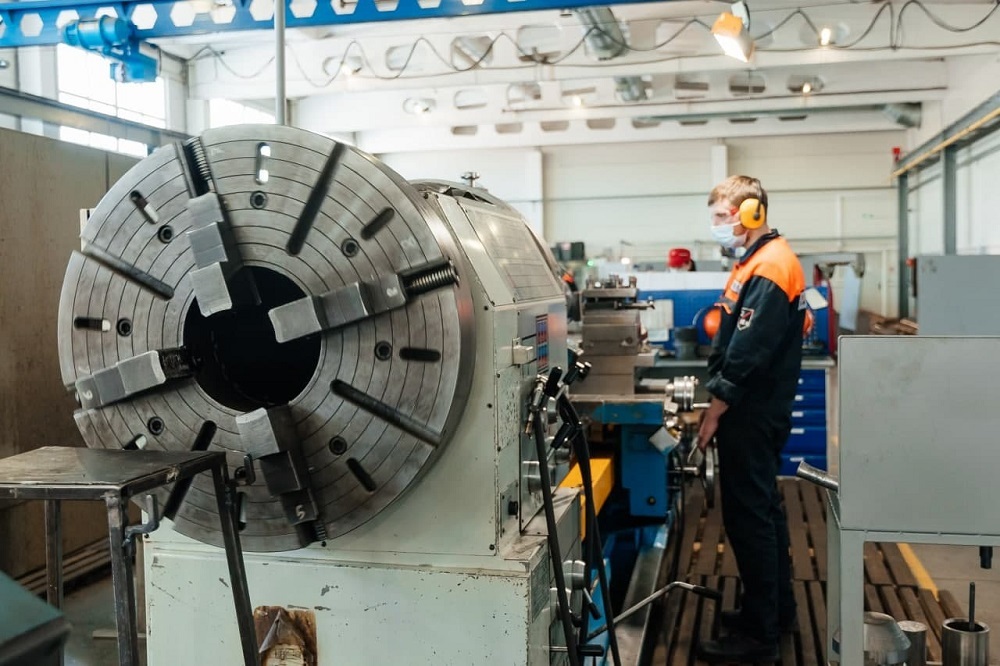
It is also possible to strengthen its position due to the fact that the Holding has the ability to quickly relocate its capacities to any region. We save our customers time and money, which is extremely important in any conditions, and especially in the current realities.
Change programs are also making a significant contribution. For example, in 2019 we launched the Comprehensive Digital Transformation Program . One of the tasks is to restructure the management system of the Holding’s divisions, to increase the flexibility and manageability of the company. So we will become even more efficient, we will be able to adapt even more quickly to the current agenda and market challenges.
– What other opportunities does digitalization open up for the oilfield services holding?
– Today we live in an environment where for customers one of the key factors in the implementation of the project is the minimum price. At the same time, the development of new technologies, investments in R&D and the renewal of funds, paradoxically, increase costs and reduce our competitive advantages.
Digitalization allows restructuring existing business processes within divisions and interactions between divisions. We exclude features that don’t add value or duplicate each other. In this way, it is possible to reduce non-productive costs and increase competitiveness. Most of our enterprises were established in Soviet times during the planned economy. Their organizational structure and operational business processes were created and aimed at achieving completely different objectives.
In addition, digitalization makes it possible to multiply the speed of information movement. From the place where the work is performed – the team itself, the party, the fleet – to the place where management decisions are made aimed at increasing efficiency, reducing losses and downtime.
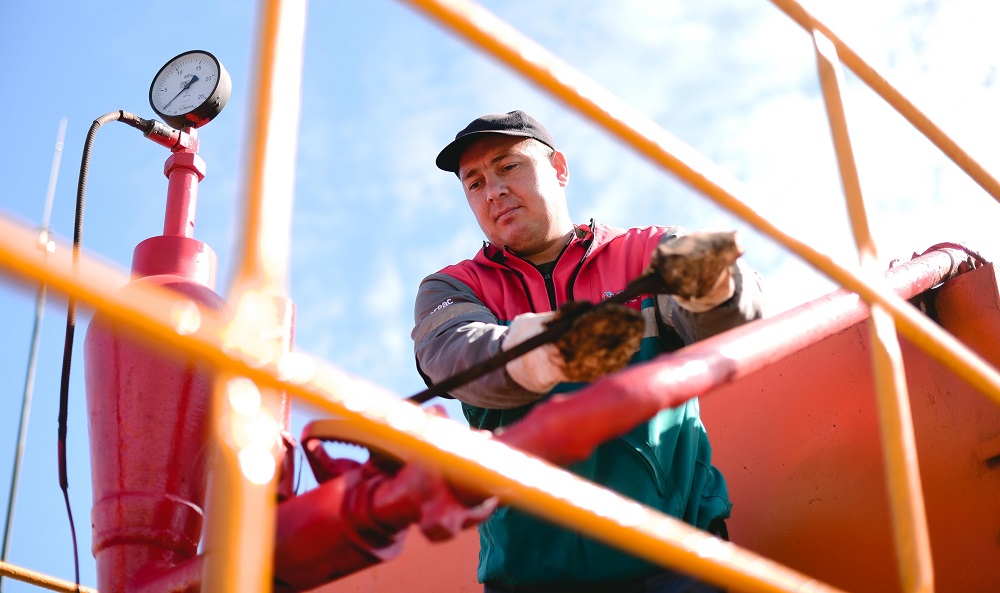
– Lenar Limovich, you have already said that the TAGRAS Holding creates about 30 thousand jobs in the Russian economy. Did you manage to maintain social obligations to employees during the crisis?
– The team is the main value of the Holding. Without exaggeration, last year we fought for every employee. And in this concept I mean not only the provision of safe working conditions, but also the preservation of employment, the fulfillment of social obligations, the organization of measures to combat COVID.
For example, during the most difficult period for all – April-May 2020 – we held negotiations with our customers in order to maximize the workload of people and keep them busy. Many customers met us halfway. A lot of support during the difficult period we had , ” Tatneft” and small oil companies of Tatarstan. For example, TATNEFT, having no need for drilling and workover services, loaded our teams with work with payment by installments for the work performed for 1 year.
Despite the difficulties, we have not refused and do not plan to give up social guarantees.
Each division has a collective bargaining agreement that guarantees employees a social support package. The Holding spent 1 billion rubles on social programs last year . This is money for labor protection, social benefits, voluntary medical insurance. We also help the families of employees with the repayment of the mortgage, provide vouchers to children’s camps and sanatoriums. Employees have opportunities for professional development and growth. We actively support veterans.
There are indeed a lot of social programs, and I will emphasize: the terms of the collective agreement have never been revised downward. Whenever possible, we try to constantly index the amount of payments to compensate for inflation.
– You mentioned the measures to combat the coronavirus. How much funds were allocated for these purposes last year?
– We approached the issues of prevention and prevention of the spread of coronavirus in a comprehensive manner. On the one hand, the divisions deployed systems for the prevention of COVID-19 infection in the shortest possible time. These are personal hygiene, thermometry, preventive cleaning and disinfection of premises, organization of remote work for some employees.

On the other hand, the divisions were actively involved in antiquated actions and, with the help of volunteers from among the employees, provided significant assistance to local authorities: in the cities and towns of the maximum residence of our employees.
In general, the costs of measures to combat coronavirus amounted to about 200 million rubles. This is a significant amount, but we deliberately went to the expense, because people’s health is one of the key priorities.
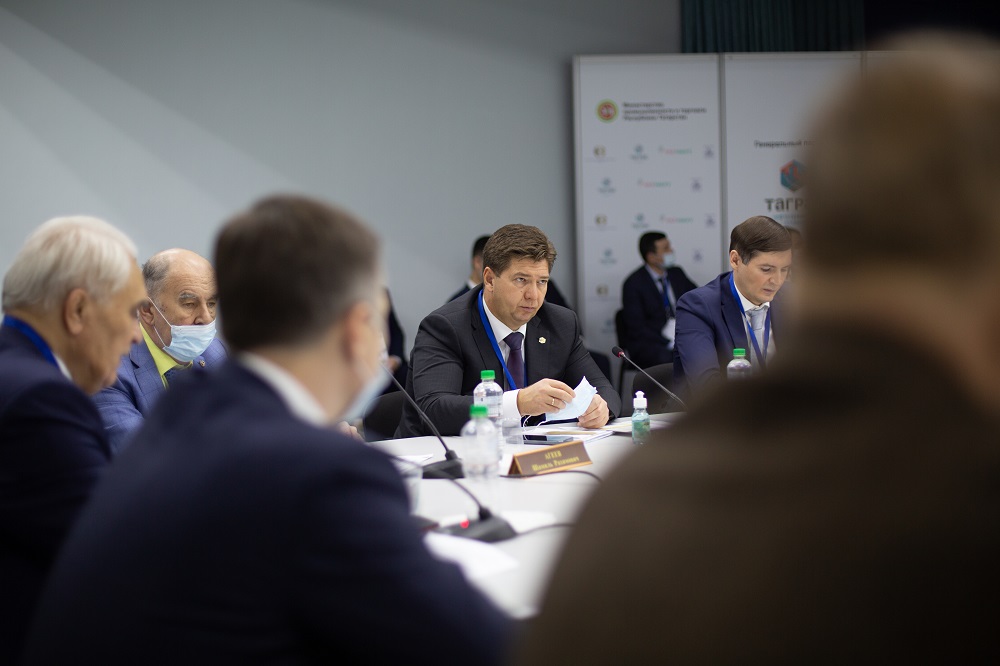
– Lenar Limovich, the crisis is not over yet. Looking to the future with optimism? On the scale of the Holding, the industry …
– Yes, unfortunately, the crisis continues. We took the first and most difficult blow. But the volume of work on oilfield services has not yet recovered even to the level of 2019. Therefore, we continue to optimize costs and are constantly looking for solutions to increase labor productivity, expand our geography and increase the volume of work.
Given the foreign policy instability, oilfield services are becoming an important element of the Russian industry, as they are able to restore oil producing companies to the level of production after the end of the OPEC + deal.
Recently, we have seen significant attention to the industry and from the state bodies of the republican government. We really appreciate it and are grateful for the support.
As for the future of the Holding, we are fully aware that in the current market, in the market of the future, only companies will survive that are capable of rapidly changing, adapting to realities, anticipating customer requests, and effectively using internal resources. We are ready for changes and new challenges.
Lenar Nazipov – on the state of the oil and gas service industry at the end of 2020, market share and development plans of TAGRAS Holding.
Interviewed by Yulia Amochaeva




